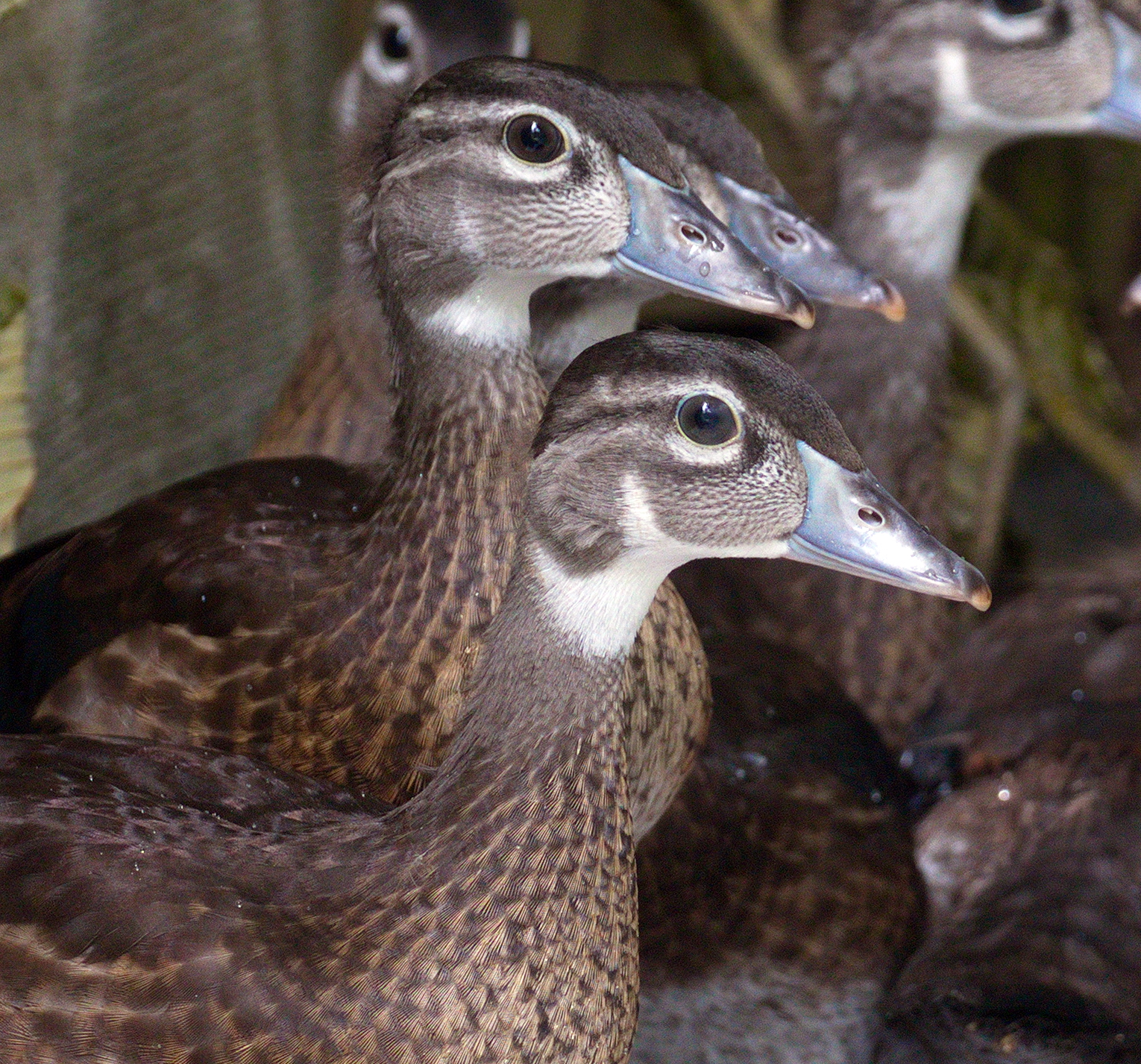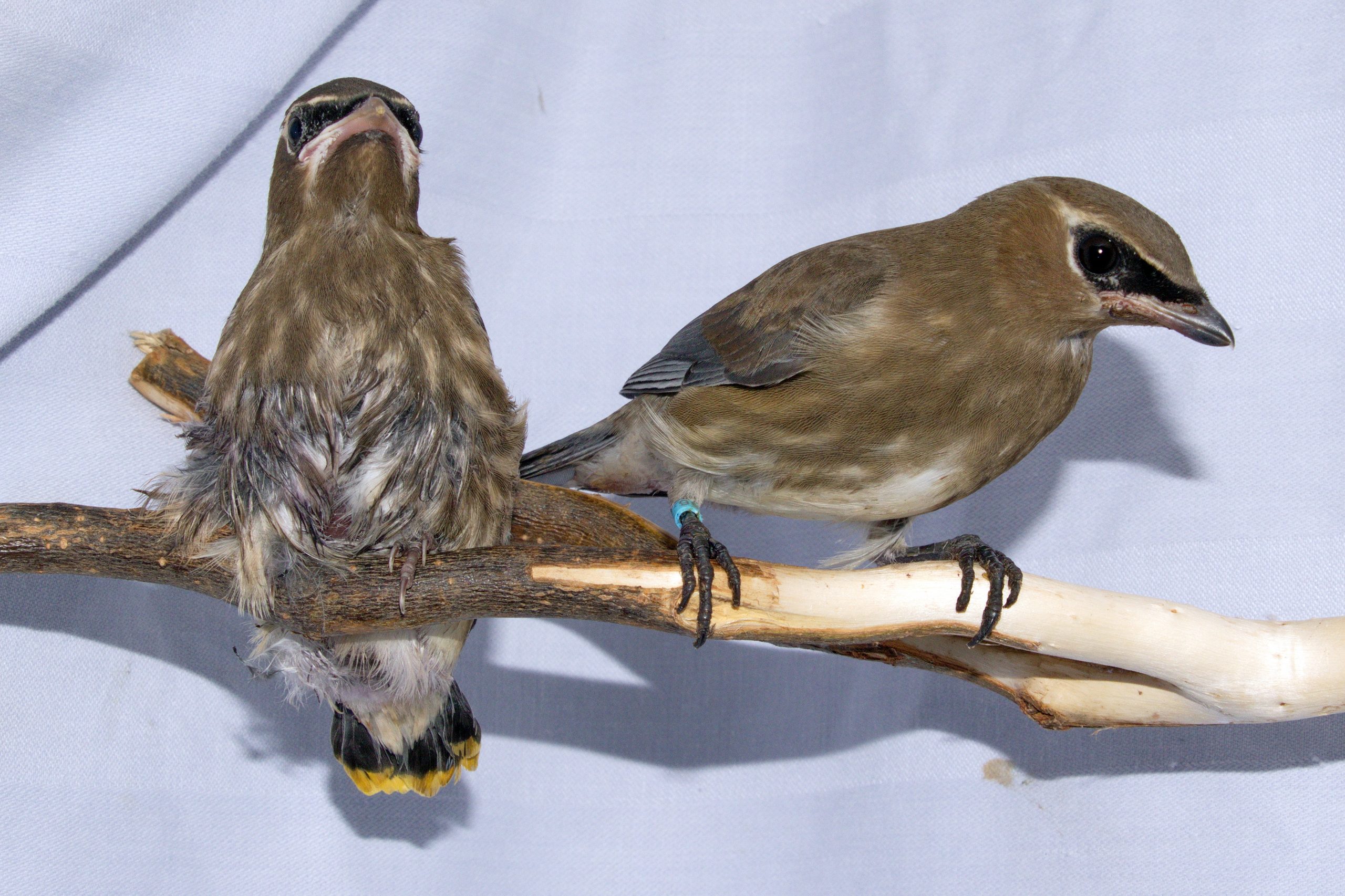Support Us
Since 1979 more than 140,000 animals have been treated by Wildlife Rescue.
Thanks to the support of individuals like you, Wildlife Rescue can provide a lifeline for animals in distress.
Every year, approximately five billion pounds of pesticides are used to control pest populations – harming local wildlife on the ground, sea, and sky. Chemical pest control solutions are a common part of our lives – whether it is a golf course, restaurant, or our own home. These different chemicals have a fatal effect on our wildlife – even threatening some wildlife populations. Each chemical may have a different impact on wildlife some fatal, others may bioaccumulate and others may pose no harm.

But why are pesticides so harmful? While the intended purpose of pesticides is to control pests, insects and weeds, these chemicals also have a large and harmful effect on other wildlife. While pesticides are often used only in specific areas (such as lawns), rain can cause pesticides to leach into local streams and rivers, affecting fish, birds and other wildlife that rely on bodies of water in various ways. When pesticides are introduced to bodies of water, fish and other wildlife often involuntarily ingest them when drinking the water. Then, when birds (such as Pelagic Cormorants) consume prey (such as codfish), they ingest these chemicals as well. Even standing in contaminated water can have harmful effects!
Pesticides are mainly used in agriculture by spraying the chemicals from a plane or using spray machines on the ground for effectiveness. Unfortunately, this blanket method can easily impact innocent wildlife that are simply at the wrong place at the wrong time and the spray can be absorbed in the skin – often enough to kill them. The large-scale agricultural industry is working on ways to reduce the pesticide impacts on wildlife and the environment with testing, sustainability efforts, environmental control boards and organic measurements and regulations. By supporting farmers and the agriculture industry through awareness of our consumer decisions. We as a community can have a positive impact on the continued efforts towards sustainable agriculture practices that impact our wildlife, giving wildlife a voice and choosing them with every product and products we purchase.
While the agriculture industry is one main consumer of pesticides, many people use pesticides at home as well. Home pesticides are often available to the average person in response to an increase in rodent activity. The average consumer often not knowledgeable about the secondary impacts that the pesticides or rodenticides have on wildlife. This is not something that is commonly written on the container or advertised. Rodenticides (Rodent-killing pesticides) are popular products that were developed to kill non-specific rodents after just one or two feedings -_ it is a slow and agonal death for most products on the market. The tasty and alluring pesticide bait may have been designed for nuisance rats and mice; however, most are non-specific and consumable and attractive to all native and protected mammals and birds. Where they will cause death to any animal (including people and pets) that may consume them.
Like rodenticides, lead poisoning can have disastrous effects on wildlife. These effects are so fatal that lead ammunition has been banned to hunt waterfowl in Canada since 1994, but the impact of lead ammunition remains today, as many lakes and fields still contain old lead shots. In fact, (according to Environment Canada) around 2.5 million birds throughout North America are affected by lead poisoning each year.

Similarly, glue traps (also known as glue boards) and flypaper can have negative effects on wildlife. Glue traps are trays that are coated with sticky adhesive and are used to catch rodents, insects, and snakes. Flypaper is like glue traps but trap birds and bats to the tape seeking insects and make it impossible to get free. Out of the various methods of animal removal, glue traps are the most inhumane as the glue trap itself does not kill the animal – instead, the animal dies slowly and painfully of starvation and dehydration, tearing at its fur, feathers, and limbs to escape. Not only is this trap cruel, but it can catch wandering wildlife and even domestic pets.
Wildlife Rescue sees hundreds of animals a year that are impacted by glue traps and flypaper. If the animal is simply removed the glue may stay on their skin or feathers, causing irritation, ingestion, inability to regulate heat and possibly get stuck to another surface. It is important to bring the animal to a rescue centre immediately while still attached to the glue trap so the experienced staff can remove the animal safely. As improper removal can cause lacerations, fractures, or important feather structures may be broken causing potential death.
Ethical Ways to Protect Your Home
Thankfully, inhumane chemicals and traps are not the only way to protect your home from pests! Above all else, using preventative measures are the most ethical option. Rodents are attracted to spaces that have both food and shelter available to them – so removing yard debris, trash, sealing all openings around the house are great ways to prevent pests from coming into the home in the first place. If pests are already in your home or space there are many humane methods to persuade them to leave before killing them, once you are sure they are gone sealing up any entry points and removing their sheltered spaces will help prevent them from returning.
Of course, eliminating possible food sources will help keep the nuisance animals away. You can do this by picking up fallen fruit, cleaning under any bird feeders, keeping bulk pet food in secure containers, feeding your pets indoors and securing your garbage, compost and recycling are another easy way to make sure your home is not attractive for rodents.
The friendly ways to persuade nuisance animals to leave your space will depend on the species and the reason it is attracted to space in the first place. In the case that you do have an unwanted guest in your home, calling a humane pest control company is the best way to make sure both you and your guest stay safe. The BCSPCA has an animal welfare accreditation program called “AnimalKind” that focuses on humane solutions for removing animals. If the unwanted guest is a protected wild animal, please look at the BCSPCA website or call our support centre for advice.
If you see a bird that has exposed bone or blood, bugs or insects covering it, no feathers, or a bird that is sleeping, human intervention is required. Please contact our Support Centre for assistance.
While the challenges of the past year have brought drastic changes to our lifestyles, we can still make sure that we help others. Making sure our protective equipment does not harm wildlife is an easy way to do so!
Thank you for keeping wildlife safe!